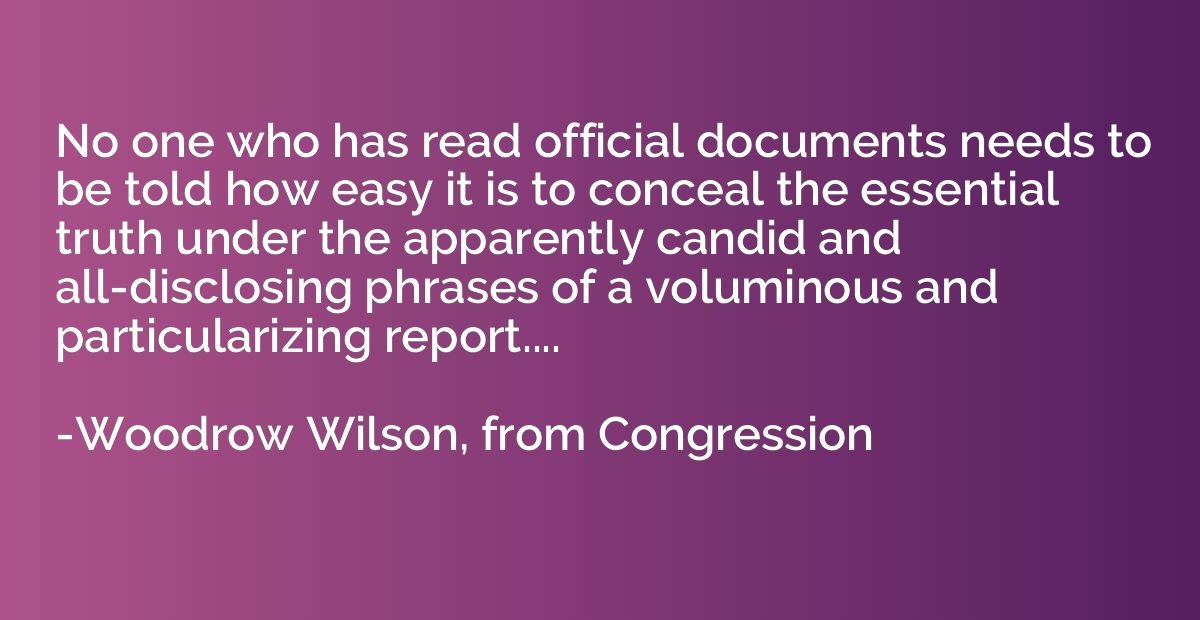Woodrow Wilson, from Congression Quotes
A collection of quotes by Woodrow Wilson, from Congression.
Woodrow Wilson was the 28th president of the United States, serving from 1913 to 1921. He was born on December 28, 1856, in Staunton, Virginia. Wilson graduated from Princeton University in 1879 and went on to study law at the University of Virginia. However, his true passion lay in academia, leading him to pursue a career in teaching and becoming a prominent scholar.
Wilson's journey into politics began when he was appointed president of Princeton University in 1902, where he implemented numerous reforms and gained national attention for his progressive ideas. His success as a reform-minded president of Princeton opened doors for him in the political arena.
In 1910, Wilson was elected as the governor of New Jersey, where he enacted progressive policies such as introducing worker's compensation, regulating public utilities, and implementing direct primary elections. Riding on this wave of success, he secured the Democratic Party's presidential nomination in 1912 and went on to win the general election.
As president, Wilson's legacy was primarily shaped by his foreign policy initiatives. He advocated for neutrality during the early years of World War I and emphasized American neutrality even as the conflict engulfed Europe. However, in 1917, Wilson led the United States into the war, aiming to establish a lasting peace and ensure the self-determination of nations.
Wilson's presidency also witnessed implementing domestic reforms, notably his support for the Federal Reserve Act, the Federal Trade Commission Act, the Clayton Antitrust Act, and the ratification of the 19th Amendment, granting women the right to vote.
Unfortunately, Wilson's later years were marred by ill-health, suffering a stroke in 1919 that left him incapacitated. He completed his presidency in 1921 and passed away on February 3, 1924. Throughout his life, Woodrow Wilson left an indelible mark on American politics and is remembered as a transformative figure in the nation's history.



